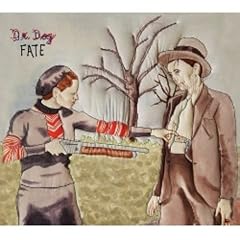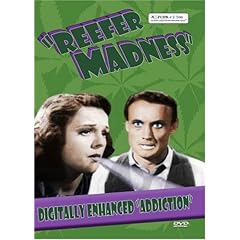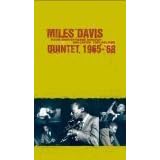
If the saying "All politics are local" is right, I'm sure glad I don't live in Oklahoma County. That's where Brent Rinehart serves as a county commissioner and part-time comic book writer.
I'm a big fan of the Miami Herald's Pulitzer Prize-winning columnist Leonard Pitts. His recent column tipped me off to Rinehart's campaign literature. Actually literature is too strong a word. Crap, excuse the language, would be more accurate. The commissioner, stuck in a tough reelection fight and facing trial on felony campaign finance charges, is using his writing skills (or lack, thereof) to publish comic books that blame all his problems on the usual villains -- gays, liberals, etc.
Read more about it here and in Pitts' column.
And speaking of comics, I saw the Dark Knight this past week. Yes, it lived up to the hype. And yes, I'm already sick of all this Batman talk. So let's just forget about that for now and see what else was in Playlist 35.
Fate. Dr. Dog
You've heard me slam Pitchfork before. Well, they deserve another slam. They've given Fate, the Philly-based Dr. Dog's latest album a mediocre 5.5 review. Don't trust those snobs. Give Fate a listen. Building on last year's wonderful We All Belong (number two on Distractions Top Album List of 2007), the Dog plies its unique lo-fi retro-rock vision to 11 more songs. You'll hear the Beatles, The Band and, even briefly ELO in these songs. But like Dr. Dog, it's a unique mix.

See my full review on the Princeton Record Exchange Blog.
Sway. Zachary Lazar.
Lazar's second novel presents the 1960s not as that era of peace, love and happiness, but as a time of evil, jealousy and death. Oh, and copious amounts of drug use. Lazar weaves together three separate, yet connected, tales of immorality, using real characters who were both touchstones of the decade -- The Rolling Stones (mostly Brian Jones), Charles Manson -- and merely footnotes -- musician Bobby Beausoleil and Satanic filmmaker Kenneth Anger.
I'm a big fan of historical fiction. But despite the numerous accolades Lazar's book has received, I struggled with it. The fact is that all the characters are so real, particularly Mick Jagger and Keith Richards, that it was hard to discern between the historical and the fiction.
That said, Lazar's well-written prose and his character development of Beausoleil and Anger drive the book. And, if anything, it had me seeking out more information on these characters who were footnotes of that historical decade.
 A good summer read -- if you don't mind a little darkness.
A good summer read -- if you don't mind a little darkness.Chip Kidd (Monographics). Veronique Vienne.
Since reading The Learners (see Playlist 22), I've been eager to learn more about author/book cover designer Chip Kidd. What I really wanted to read was this, but instead went with Vienne's book. Kidd is one of many talented book cover designers now, but he's gotten the most press. He's very much a rock star of the book design world. It's easy to see why in this collection of his more interesting covers. (His Elephant Vanishes cover is on the left.)
Weeds, Season 3 and 4 (so far).
As I said when I reviewed Season 2 earlier this year, the best way to describe this show is depraved. But thanks to the very imaginative and funny writers and some wacky acting, it has survived well its move from Agrestic/Majestic. (Unfortunately, the
 opening song Little Boxes didn't make the move.) Warning: It's very addicting. And it may be a gateway to other shows, such as ...
opening song Little Boxes didn't make the move.) Warning: It's very addicting. And it may be a gateway to other shows, such as ...Reefer Madness.
This is one of those college-age rituals, like the whole Wizard of Oz/Dark Side of the Moon thing, that I missed out on. But I caught it late one night on FLIX. Originally titled, Tell Your Children, this 1936 film aims to warn everyone about the scourge of Marihuana. And based on the film, this drug, which is worse than heroin, will make you laugh uncontrollably, dance as poorly as Elaine in that Seinfeld episode, act promiscuously and then murder someone. On the good side, you'll be able to play the piano really fast. It is something that really has to be seen to be believed. What a wonderful dichotomy to Weeds.














